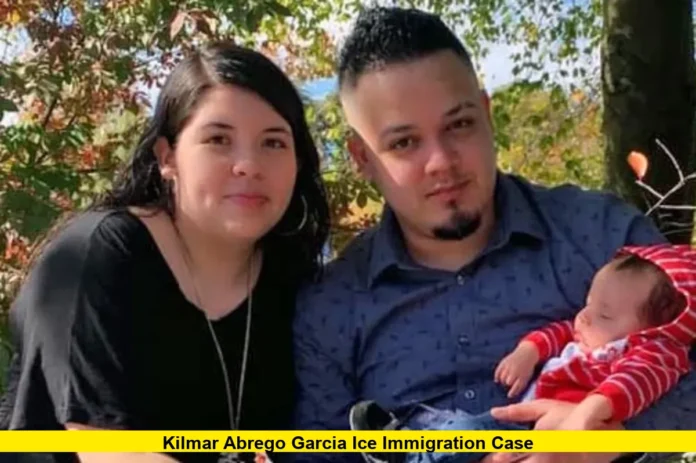When it comes to high-profile immigration cases, few have drawn as much attention as the ongoing events surrounding kilmar abrego garcia ice immigration in the United States. Over the past several months, this case has tested the boundaries of immigration law, the limits of executive power, and the resilience of due process for individuals caught in the nation’s immigration system.
Judge Halts Immediate Deportation Efforts
In a pivotal decision on July 23, 2025, two federal judges from Tennessee and Maryland issued back-to-back rulings that block U.S. authorities from detaining and deporting Kilmar Abrego Garcia the moment he is released from jail. These decisions serve as a temporary lifeline for the Salvadoran migrant who, earlier this year, was at the center of a wrongful deportation by the Trump administration—despite prior judicial orders designed to keep him in the U.S.
Judge Waverly Crenshaw in Tennessee found insufficient evidence to justify continued jail time while Abrego Garcia awaits his January trial on charges of human smuggling. Judge Paula Xinis in Maryland reinforced this protection, stating that ICE must provide advance notice before any further removal attempts. Both judges cited serious concerns about the government’s adherence to due process and its allegations connecting Abrego Garcia to the MS-13 gang, noting the lack of clear proof.
A Timeline of Key Events
Here’s how Kilmar Abrego Garcia’s ICE immigration saga has unfolded:
| Date | Event |
|---|---|
| March 2025 | Wrongfully deported to El Salvador despite a federal court order. |
| June 2025 | Returned to U.S., faces human smuggling charges in Tennessee. |
| July 2025 | Federal judges order protection against immediate ICE detention. |
- March: Abrego Garcia is deported to El Salvador, allegedly in an “administrative error,” and held in the CECOT prison.
- June: Supreme Court and sustained advocacy help secure his return to the U.S. to face charges, rather than remain imprisoned abroad.
- July: Dual court rulings ensure he cannot be transferred directly to ICE for deportation upon release from jail.
What Are the Charges?
Federal prosecutors allege that Abrego Garcia, a Salvadoran national and resident of Maryland, operated a human smuggling network from 2016 to 2025. Authorities claim he helped undocumented people—including minors and alleged MS-13 gang members—travel from the southern border into the U.S. The accusations grew out of a 2022 traffic stop in Tennessee and have since evolved into a national flashpoint for immigration policy.
Despite these charges, both federal judges questioned the strength of the prosecution’s claims, especially suggestions that he poses a danger to the community or is a significant flight risk. While prosecutors have sought pretrial detention, judges have pointed to the absence of compelling evidence and directed that he could be released under proper supervision.
What’s Next for Abrego Garcia?
Although judges have temporarily barred immediate ICE detention, Kilmar Abrego Garcia’s future remains clouded:
- His release from jail has been paused for 30 days, allowing time for the government to appeal and for attorneys to finalize his supervision conditions.
- ICE officials are preparing to take custody should his release be finalized, but must notify his attorneys before initiating deportation proceedings.
- It is not clear which country he could be deported to. ICE officials admitted in court that they have not yet determined whether he would be sent back to El Salvador or to a third country.
National and Political Impact
Abrego Garcia’s case underscores growing concerns about immigration enforcement under the Trump administration. Critics argue that the handling of his case, including the disregarding of prior court orders and the attempt at swift deportation, exemplifies overreach and a lack of commitment to legal process. The Department of Homeland Security has publicly stated that “he will never walk America’s streets again,” despite the courts ordering due process protections.
Key Points for Readers
- Current Status: Abrego Garcia remains in federal custody in Tennessee. His release is paused for at least 30 days.
- Court Orders: ICE cannot detain or deport him immediately; any action must be preceded by advance notice to his legal team.
- Ongoing Debate: The next steps will depend on how higher courts respond and on government appeals. Deportation proceedings could still begin once released.
The coming weeks are critical, as both sides prepare for appeals and further hearings. It’s a landmark moment for immigration law, shining a spotlight on the complexities and challenges facing migrants caught in the crossfire.
Have thoughts on the case, or questions about immigration law? Share your perspective below—your voice matters in these pivotal national conversations.
